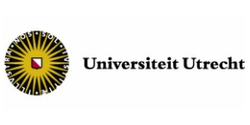PhD on Sedimentation Enhancing Strategies for Delta Sustainability
Updated: 20 Nov 2024
Coastal river deltas must adapt to relative sea-level rise. Sedimentation, which occurs naturally in deltas, is a key factor for successful adaptation. However, anthropogenic activities reduce sediment delivery and hinder sedimentation processes. This PhD project aims to explore the potential of sedimentation for adaptation in deltas around the world. It will assess sedimentation processes and strategies to enhance sedimentation, providing insights into the role of sediment in supporting delta adaptation.
Your job
You will investigate the effectiveness of sediment management strategies for adaptation, as well as assess global delta sediment needs and deficits under relative sea-level rise scenarios, highlighting the limits of adaptation. The project will involve developing a generic numerical model, derived from high-resolution process-based models, to evaluate sedimentation management. Additionally, you will explore the potential for sediment management to support other adaptation measures as part of pathways towards adaptation strategies.
To support both your academic and personal development, you will take courses and assist in teaching Earth Sciences courses at the Bachelor's and Master's levels. These activities will comprise twenty percent of your contracted time.
Requirements:
We encourage you to apply if you meet the following qualifications:
- You hold an MSc degree in Earth or Environmental Sciences, Engineering, or a related field, with demonstrable experience in numerical modelling of Earth surface processes.
- You have strong programming skills and experience with large spatial datasets (preferably in Python, or a willingness to learn Python). Experience with High-Performance Computing (or an interest in learning) is desirable.
- You are interested in and capable of participating in interdisciplinary research.
- You possess strong quantitative skills, particularly in (spatial) data analysis, hydrological modelling, and scenario analysis.
- You have excellent written and verbal communication skills in English.
- You enjoy working in an international environment and as part of a multidisciplinary team.
Salary Benefits:
We offer:
- a position for one year, with an extension to a total of four years upon a successful assessment in the first year, and with the specific intent that it results in a doctorate within this period;
- a working week of 36-40 hours and a gross monthly salary between €2,872 and €3,670 in the case of full-time employment (salary scale P under the Collective Labour Agreement for Dutch Universities (CAO NU));
- 8% holiday pay and 8.3% year-end bonus;
- a pension scheme, partially paid parental leave and flexible terms of employment based on the CAO NU.
In addition to the terms of employment laid down in the CAO NU, Utrecht University has a number of schemes and facilities of its own for employees. This includes schemes facilitating professional development, leave schemes and schemes for sports and cultural activities, as well as discounts on software and other IT products. We also offer access to additional employee benefits through our Terms of Employment Options Model. In this way, we encourage our employees to continue to invest in their growth. For more information, please visit Working at Utrecht University.
36 - 40 hours per week
Princetonlaan 8a

